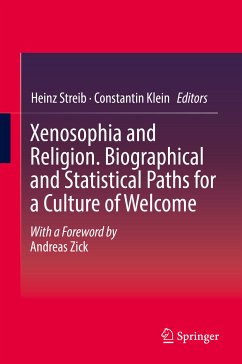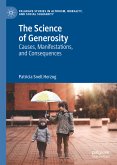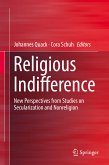This book documents the current polarization in Germany regarding the issue of refugee immigration. It presents quantitative estimates for both xenophobia and xenophilia in the German population, including short-time changes. The book suggests a conceptual change of perspectives. It focuses not only on the pathogenic model that accounts for outcomes such as xenophobia, Islamophobia and other forms of (inter-religious) prejudice, but on a salutogenic model. In the book's view, the salutogenic model entails xenosophia: the wisdom, creativity and inspiration that emerges from the encounter with the strange and the strange religion. The book addresses individual dispositions, which may lead to xenophobia or xenosophia, and takes into account predictors such as religiosity, religious schemata, value preferences, tolerance of complexity, and violence legitimizing norms of masculinity. A selection of case studies present typical biographical trajectories toward xenosophia.
Dieser Download kann aus rechtlichen Gründen nur mit Rechnungsadresse in A, B, BG, CY, CZ, D, DK, EW, E, FIN, F, GR, HR, H, IRL, I, LT, L, LR, M, NL, PL, P, R, S, SLO, SK ausgeliefert werden.









